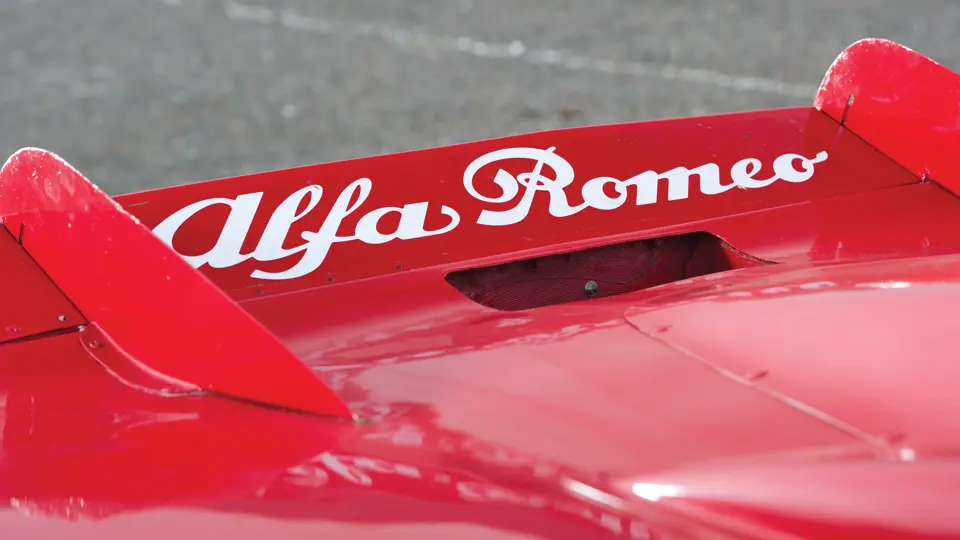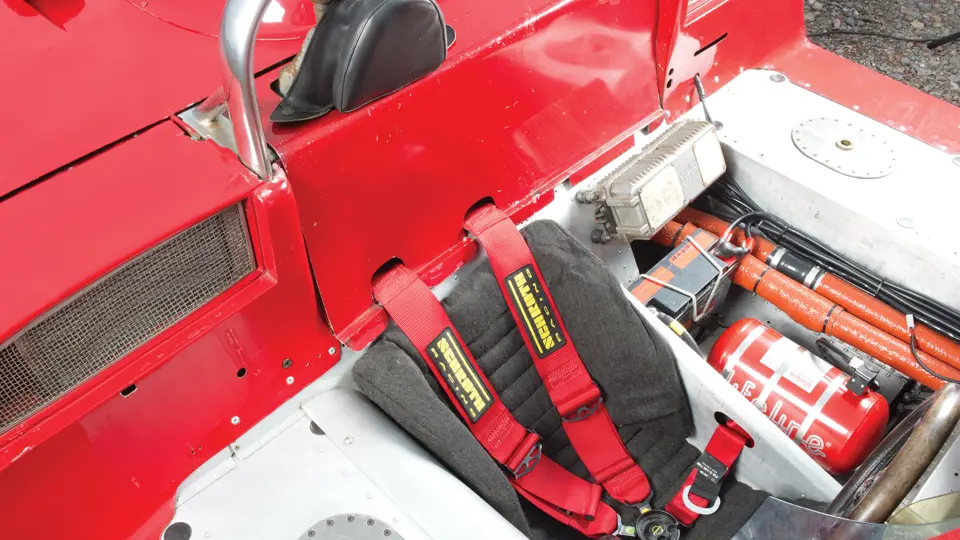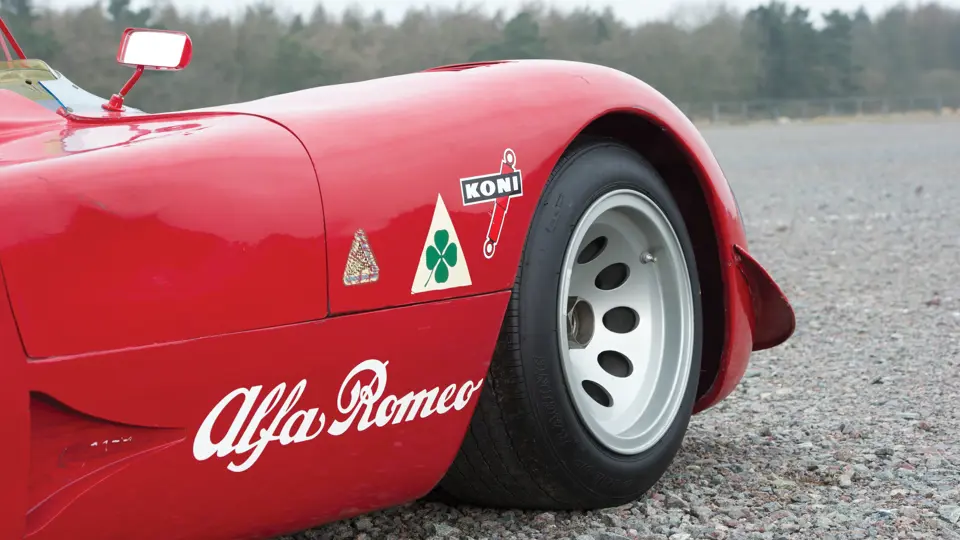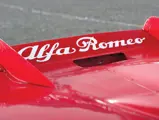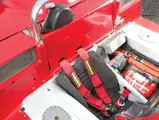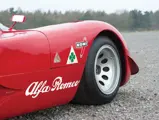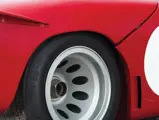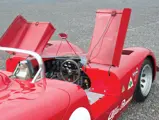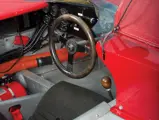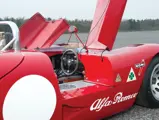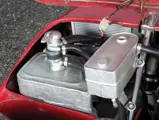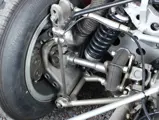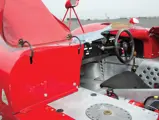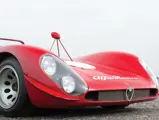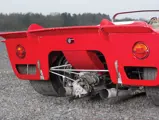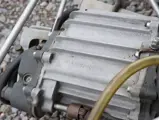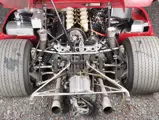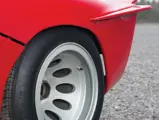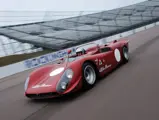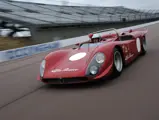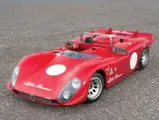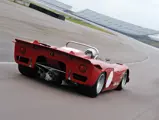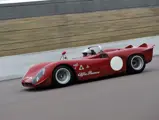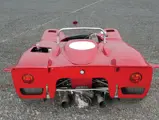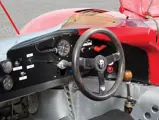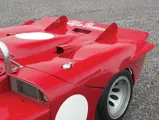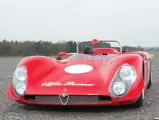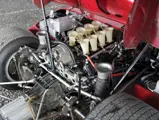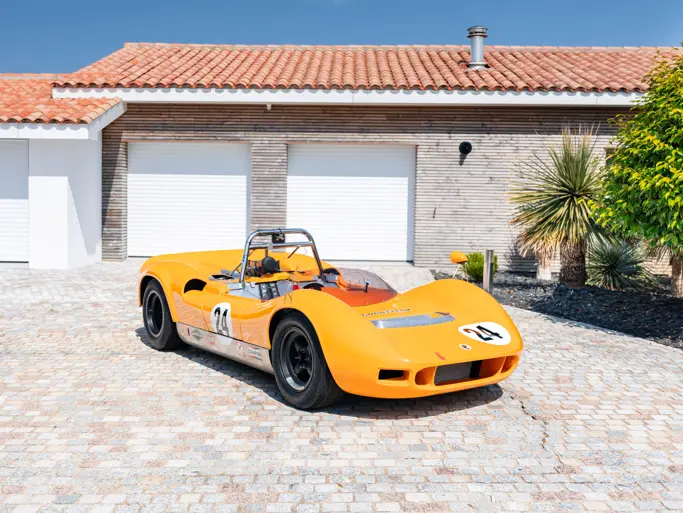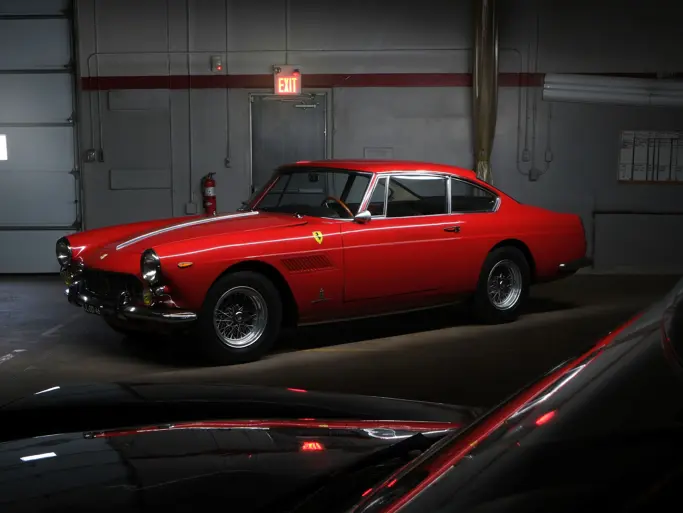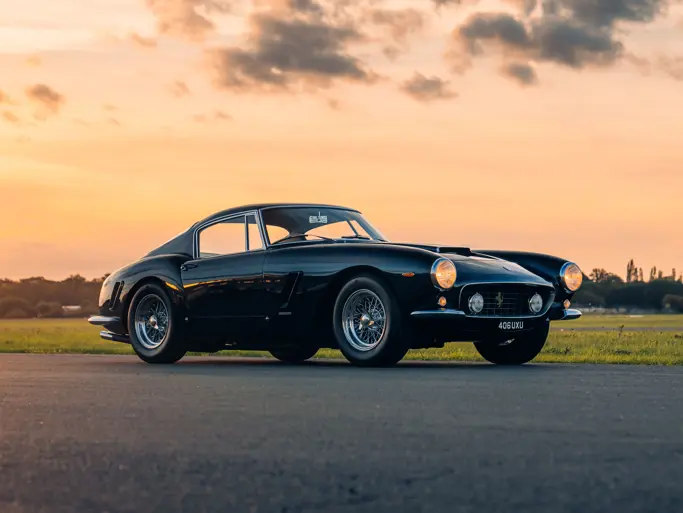440 bhp, 2,998 cc DOHC V-8 four-valve engine, Lucas indirect fuel-injection, five-speed manual gearbox, independent front and rear suspension with double wishbones, coil springs and anti-roll bars, and four-wheel hydraulic disc brakes. Wheelbase: 2,240 mm (88.2")
• Built and raced by Autodelta
• Sold directly from Carlo Chiti’s Autodelta, as last raced, to its first owner in 1973
• A virtual ‘time warp’ with recent, full mechanical and sympathetic body restoration
• Only test mileage since restoration in 2006
Once Autodelta was designated the competition arm of Alfa Romeo, work began on the successful TZ and TZ2. By 1966, Orazio Satta and Giuseppi Busso were working on the prototype known as 105.33 and when a two-litre, four-cam, 90-degree V-8 was installed, the Tipo 33 program was on the road. The T33 ‘Periscopa’ (for its overhead intake to the Lucas fuel-injection) weighed only 1,278 pounds and its top speed approached 185 mph.
The T33’s first competition outing was at the Belgian hill climb at Fleron in early 1967, the only event it could get to before Sebring, to which Chiti had committed a team. It won in the hands of Teodoro Zeccoli, and then Andrea de Adamich, who figures significantly in this particular T33’s story and broke the GT lap record at Zolder. At Sebring, de Adamich and Zeccoli qualified, and de Adamich led the first two laps, but the Porsches and Ferrari Dinos got past and both Alfas retired.
Four cars were entered for the Targa Florio with de Adamich and Jean Rolland in one car. The rough roads broke the front suspension on all four cars, although de Adamich led the two-litre class for some time. A similar fate overtook the team at the Nürburgring on 1 June, though de Adamich and Nino Galli finished 5th, after taking over the Bissinello/Zeccoli car when the front suspension broke on their own car. The team won several hill climbs but withdrew from Le Mans in June and the BOAC 500 at Brands Hatch in July. Then French rally driver Jean Rolland crashed at Montlhéry and was killed. Success came at Vallelunga in October, however, when de Adamich and Ignazio Giunti achieved a 1 – 2 finish.
Introduction of the T33/2
As pretty as the T33 was, it just didn’t hold up, and the stakes were getting higher. The 1968 Daytona 24 Hours was a qualified success with three T33/2s finishing 5th, 6th and 7th. Three cars were entered for the BOAC 500 at Brands Hatch as well.
Autodelta entered four T33/2s for the ‘68 Targa Florio, and whilst Vic Elford won in his Porsche 907, Galli/Giunti were 2nd and won the two-litre class, whilst the other T33s finished 3rd, 5th and 6th, a much better showing. The Nürburgring 1,000 Kilometres saw a 2.5-litre T33 entered, along with four two-litre cars. Nino Vaccarella and Herbert Schultze finished 5th and won the two-litre class, whilst other T33s were 7th, 10th, 13th and 29th. This time, problems were electrical. Finally, the team won at Mugello, with Galli/Varella/Bianchi 1st and Jo Siffert 2nd. The T33s now seemed to be showing real promise and finally managed a 1-2-3 at Imola, with Giunti/Galli taking the win. The pair would be 4th at Le Mans, with other T33s finishing 5th and 6th.
One might think 1969 would build on this improvement, but it was not to be. Daytona and Sebring were marked by breakdowns and crashes, and then Lucien Bianchi was killed during testing at Le Mans. Scooter Patrick was winning races in the U.S., and hill climb results were good, but Alberti/Pinto only scored a 5th in the Targa Florio, though the race did mark the return of Andrea de Adamich, who DNF’d. Still, Carlos Pace won the Rio 3 Hours in Brazil, whilst Nino Vaccarella managed a 2nd in Sicily in the T33 coupé, Giunti a 2nd at Imola in heavy rain and Weber a 1st at Hockenheim in dense fog.
By 1970, it was clear just how challenging this series would be, but the schedule was expanded to cover any races of merit. The new cars were also given star names, as one of Chiti’s fancies, but the DNFs continued. Still, Piers Courage and de Adamich won the Buenos Aires 200 in Argentina and then were 8th at Sebring, behind Gregory/Hezemans, who were 3rd. Galli/Rolf Stommelen were 7th at Monza, with Courage and de Adamich 13th.
The T33/3 followed, with notable results including 3rd at the Argentine 1,000 Km at Buenos Aires with Stommelen/Galli followed by Pescaraolo/de Adamich in 4th, with these pairings repeated their positions at Sebring. Bob Wollek won at Albi, and then de Adamich/Pescarolo won the Brands Hatch 1,000 Km. At Imola, de Adamich/Pescarolo were 3rd, ahead of Stommelen/Galli in 4th and Hezemans and Vaccarella in 5th. De Adamich/Pescarolo were 3rd at Spa and then 2nd in the Targa Florio, behind Vacarella/Hezemans. At the Nürburgring 1,000 Km, Adamich/Pescarolo 4th and Vaccarella/Hezemans 5th, whilst the latter team was 2nd in Austria, with Stommelen/Galli 3rd. De Adamich/Ronnie Peterson won the Watkins Glen 6 Hours, and de Adamich managed 7th in the Can-Am race by himself the next day, after his mechanics were too tired to install the new four-litre motor.
T33/3 Chassis No. 105 800 23
It is well-known to Alfa Romeo enthusiasts and confirmed by the authors of the definitive Alfa Romeo Tipo 33 text, Peter Collins and Ed McDonough, that the marque’s chassis records are notoriously difficult to track. In fact, many records were kept only in Carlo Chiti’s head, and he died in 1994. However, the car offered here, Tipo 33/3 chassis no. 23, was purchased from Carlo Chitti’s Autodelta directly by its first owner on the 10th November 1973, as confirmed by a copy of the original sales invoice from Autodelta S.p.a. to Milan’s Weiss-Siam company for 5,000,000 lire. Weiss–Siam was the company responsible for importing Koni shock absorbers for Italy, hence the connection to Autodelta and Carlo Chiti, as Koni was the supplier of shock absorbers to Autodelta.
The car remained in the collection of the first private owner for 30 years, until 2003 when it was sold to its second Italian owner. The car was totally original when purchased in 2003, marking a true “time warp” example of an Alfa Romeo 33. Photographs of the car at this juncture provided confirmation that the car remained in the state in which it was sold by Autodelta back in 1973, having virtually not turned a wheel since then. Given the remarkable originality of Chassis 023, the second owner elected to leave it untouched and placed it within his collection.
In 2004, Chassis 023 was sold to the current owner who imported the car to the UK, where it has formed part of an important private collection. In 2006, it was entrusted to Pearsons Engineering Ltd. for examination and the restoration of the car was started with originality as a priority, as the car had remained untouched since it left Autodelta in 1973. Garry Pearson carefully dismantled the car to remove the engine and gearbox, the front and rear suspension was stripped and the fuel cells were removed. All the suspension parts and wheels were crack-tested and x-rayed and then cleaned and readied for re-assembly. The engine block, cylinder heads, and assorted components were sent for ultrasonic cleaning and then the crankcase and connecting rods were Magnafluxed and then checked for any cracks. Both the engine and gearbox were then rebuilt. All the instruments were cleaned and serviced and the car was reassembled using as many original parts as possible, keeping the originality of the car. Detailed restoration invoices are available for inspection within the car’s history file, totalling almost £100,000 for the mechanical restoration.
Carlo Chiti and Autodelta never kept exacting records of the races; however, on close inspection, it is interesting to find the name ‘de Adamich’ on the rear of the original seat of Chassis 023 and the electrical cut-out switch positioning, which makes it likely that this was in fact the car used by de Adamich and Piers Courage throughout the 1970-racing season.
Sympathetically restored, Chassis 023 remains a true ‘time warp’ example, with the body being left as original as possible. It is very rare to find a car in this condition, being so original yet mechanically restored by one of the UK’s best race-preparers. Since the restoration of the car in 2006, it has not yet been raced and it was only used a few times for shakedown runs and test miles only. Chassis 023 is simply breathtaking throughout – it is an extraordinary historical document and a racing car of supreme technical prowess and unmatched driving pleasure.
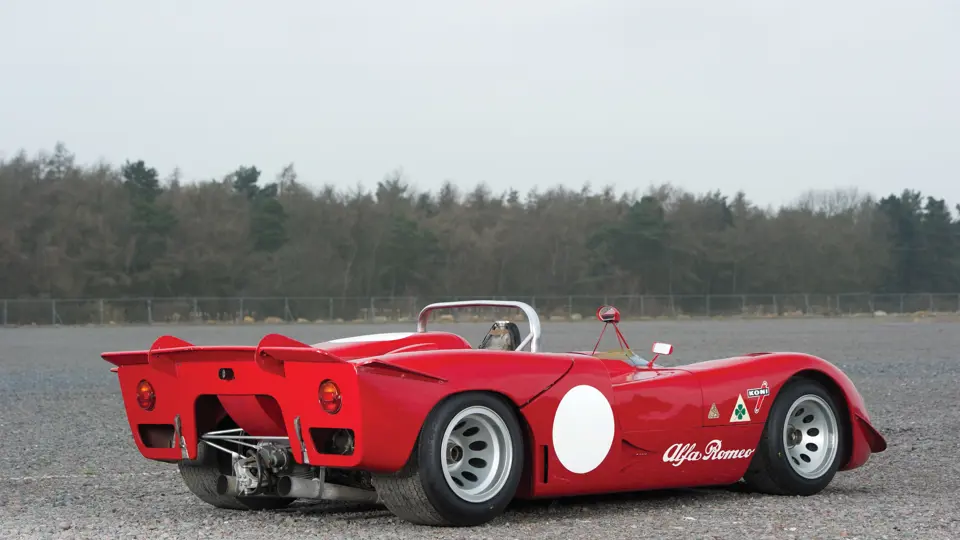



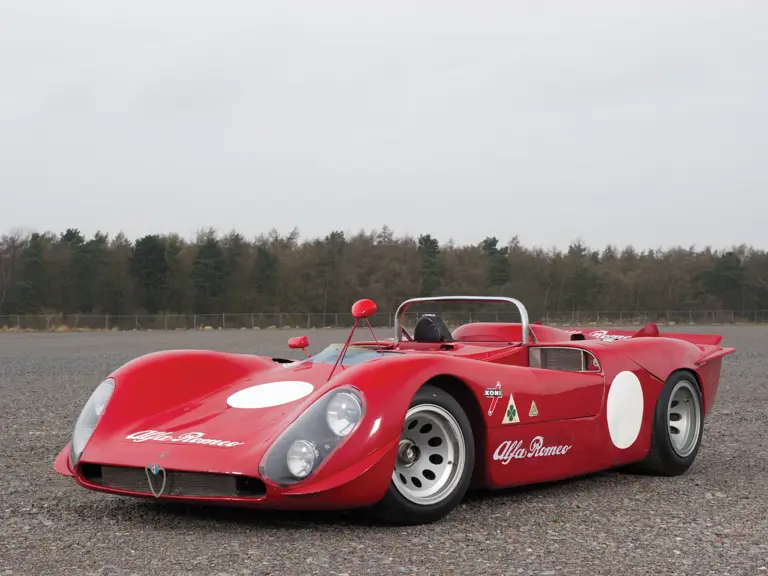
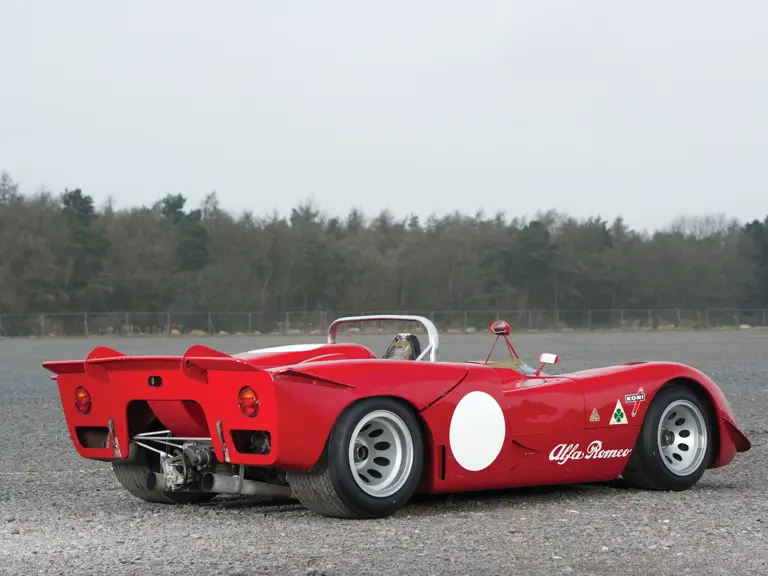
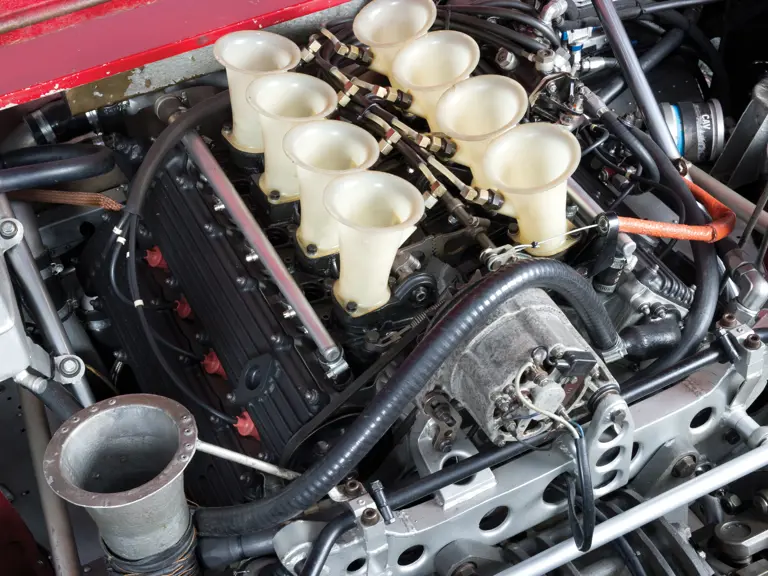
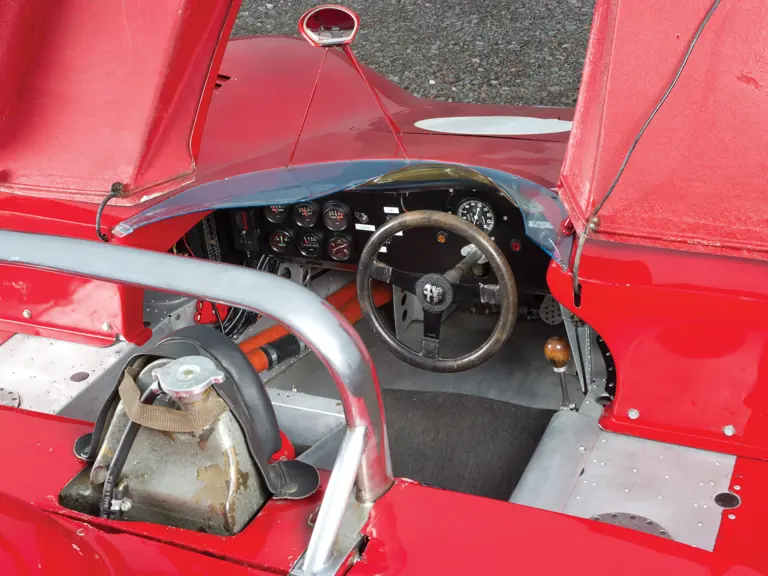
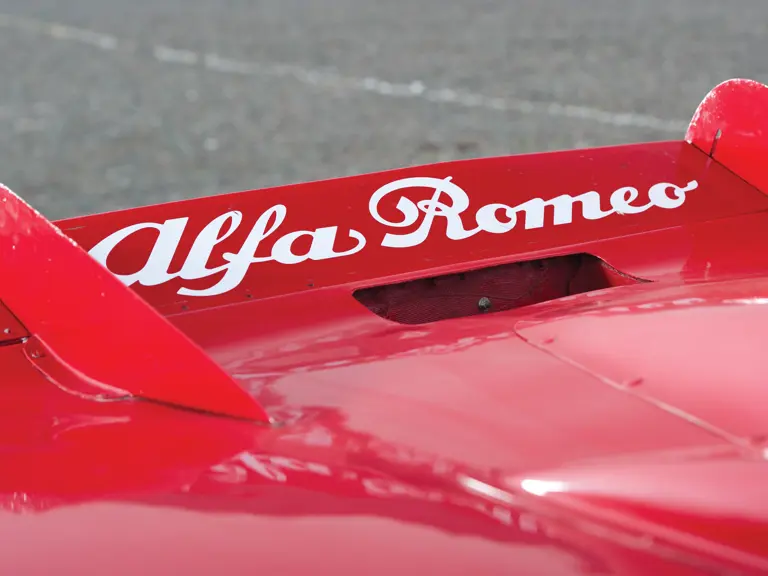
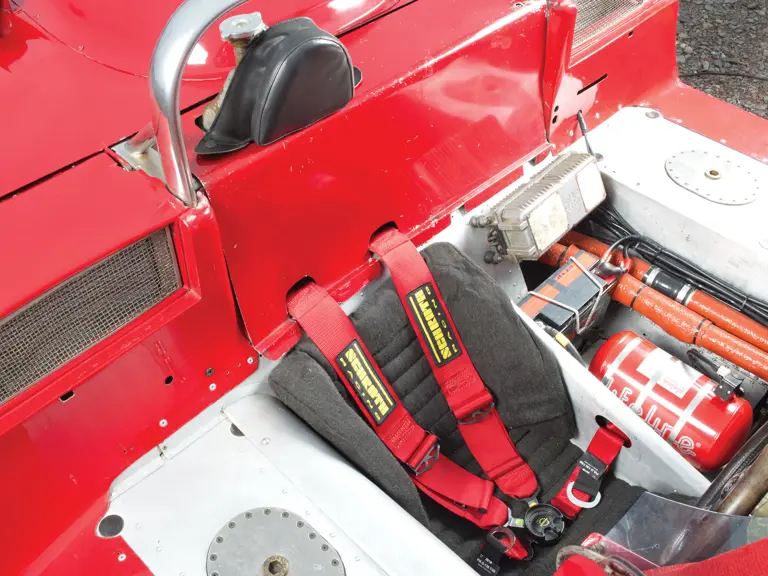
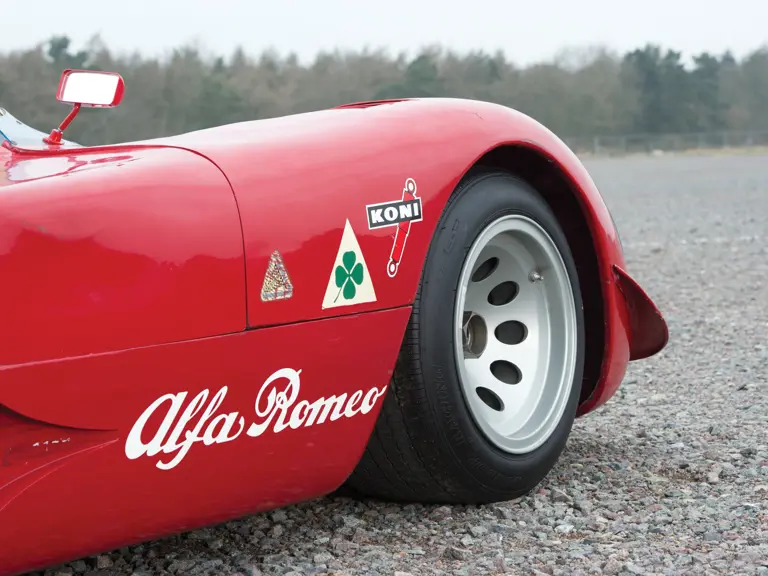
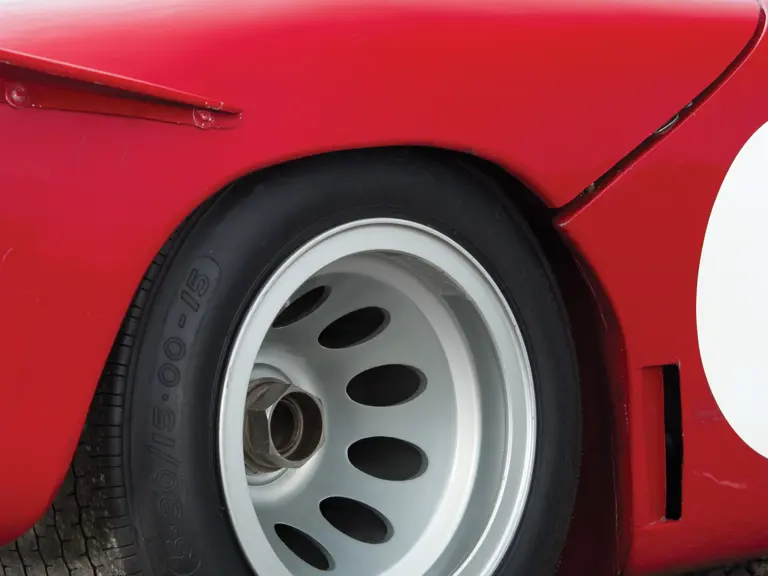
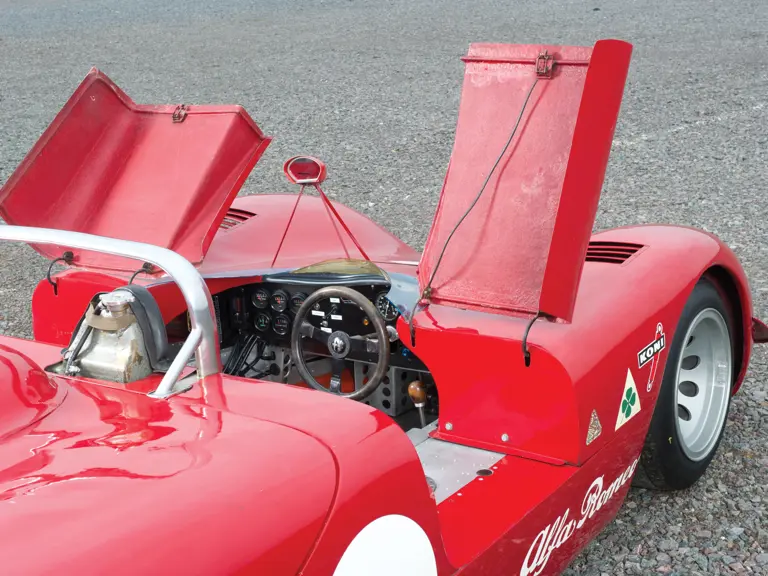
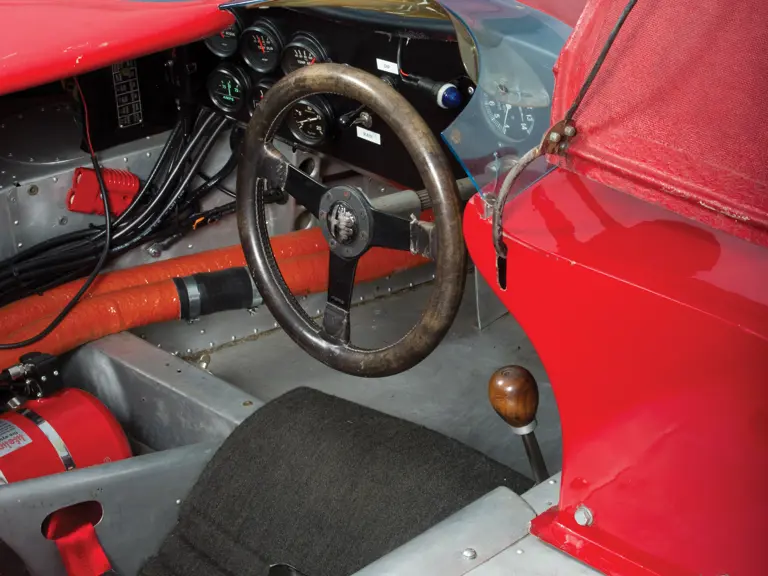
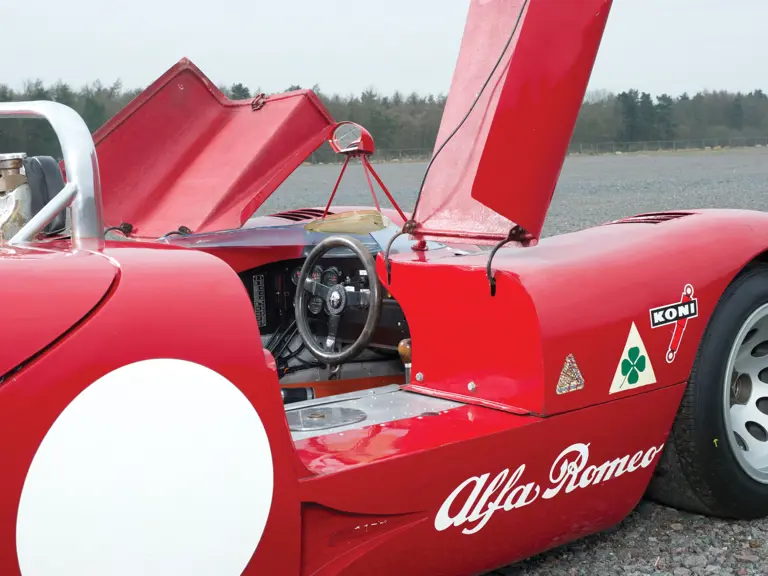
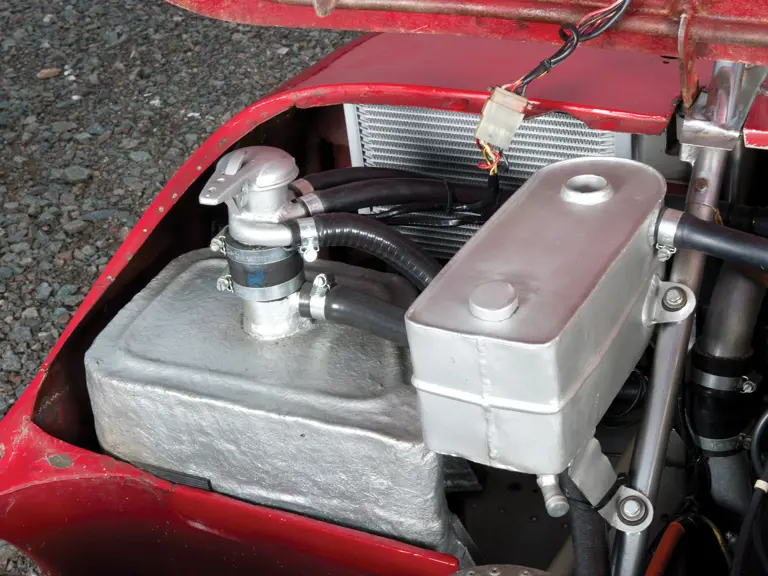
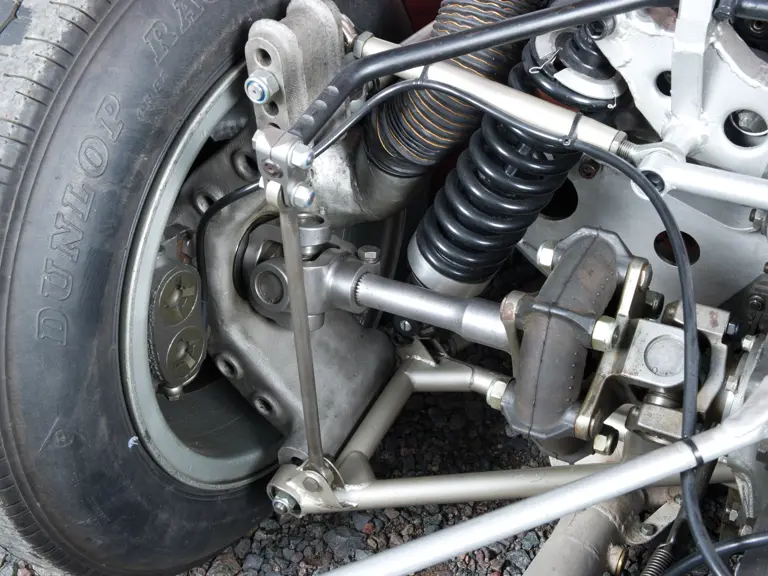
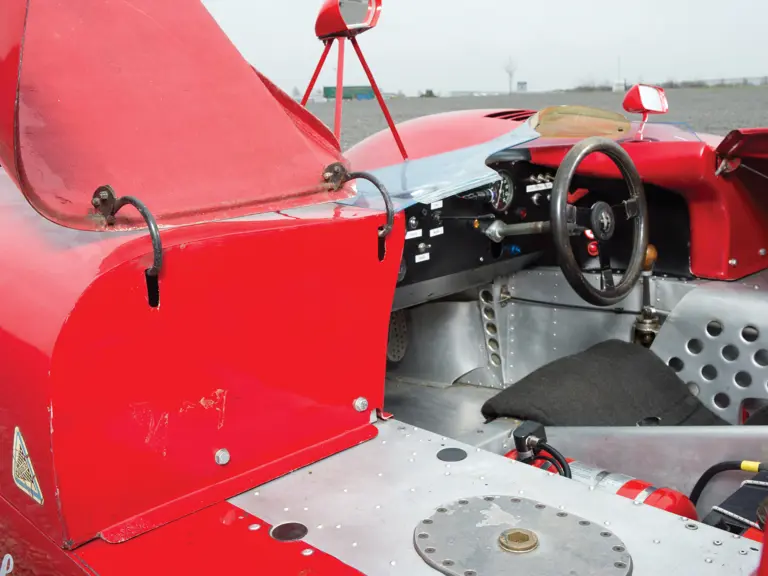
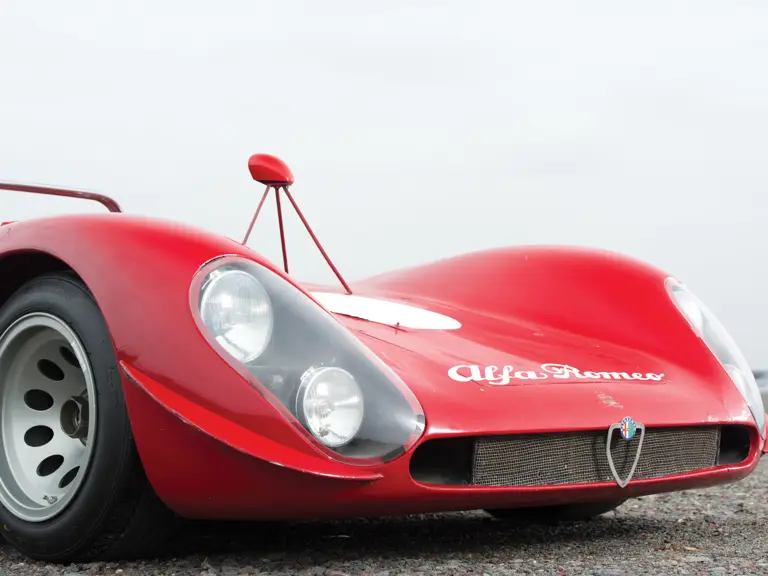
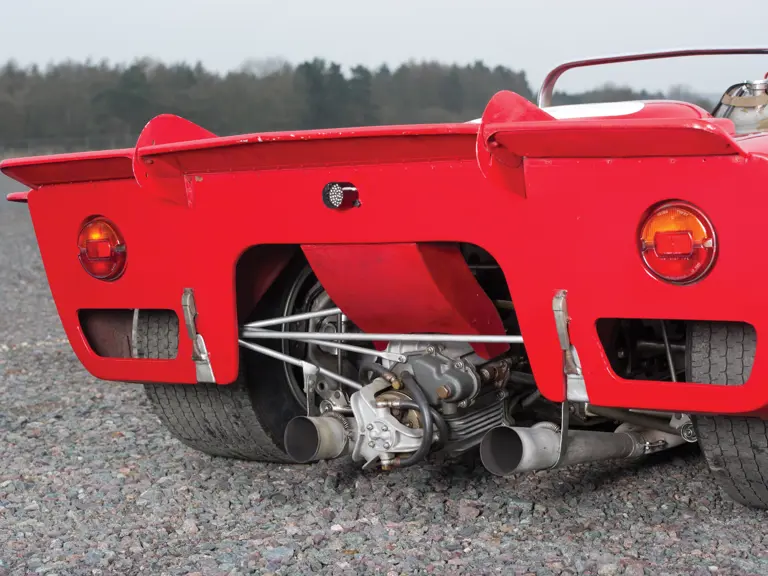
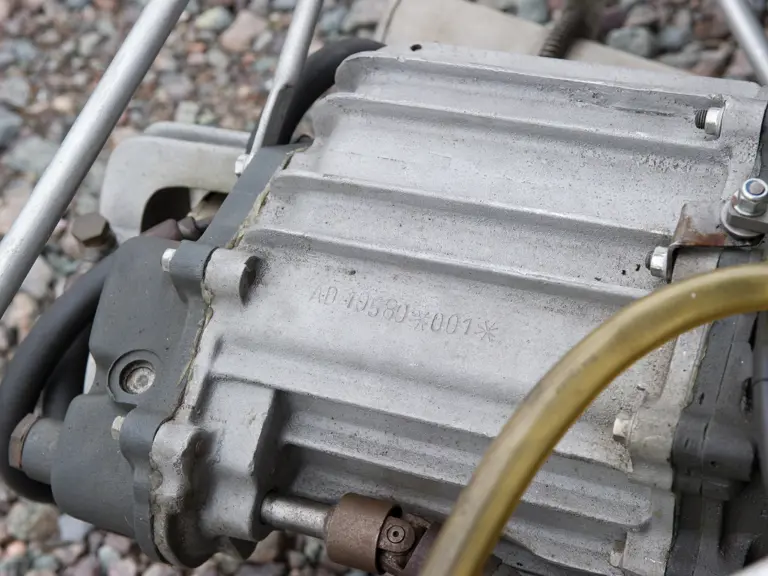
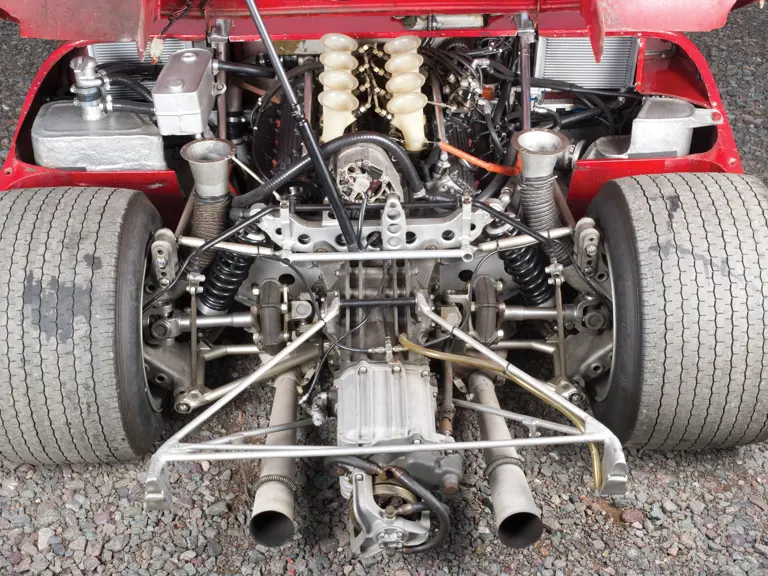
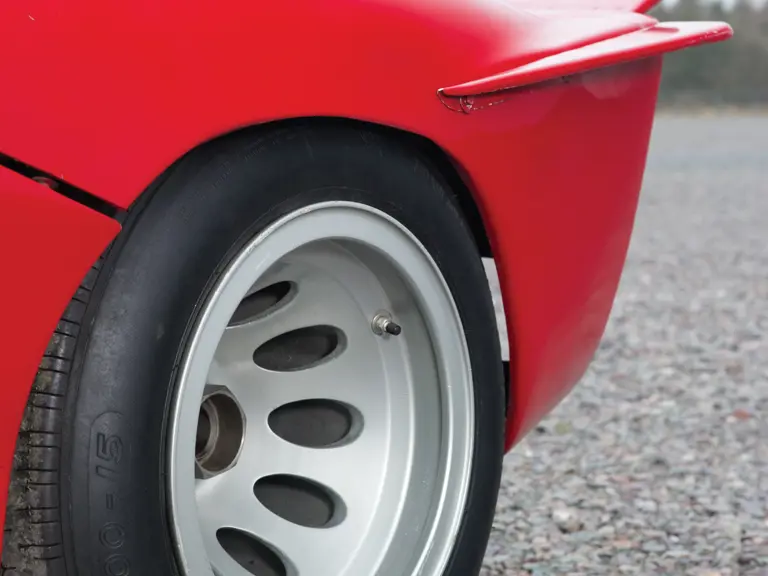
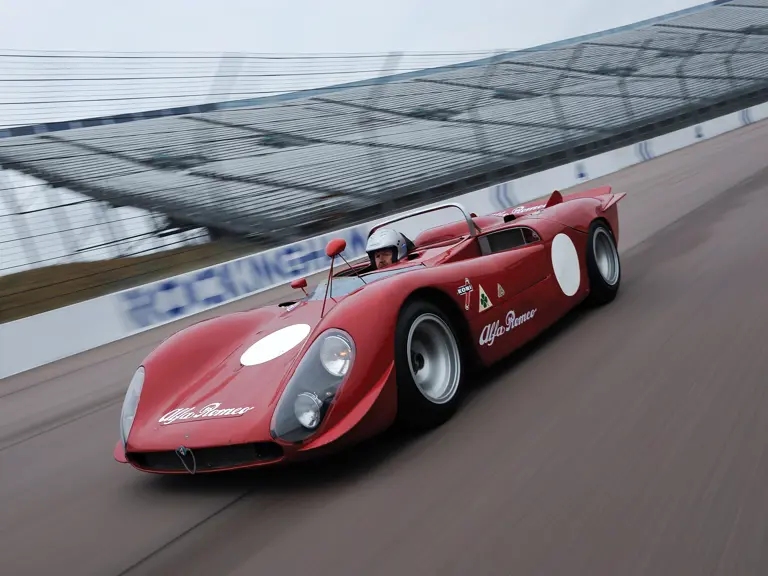
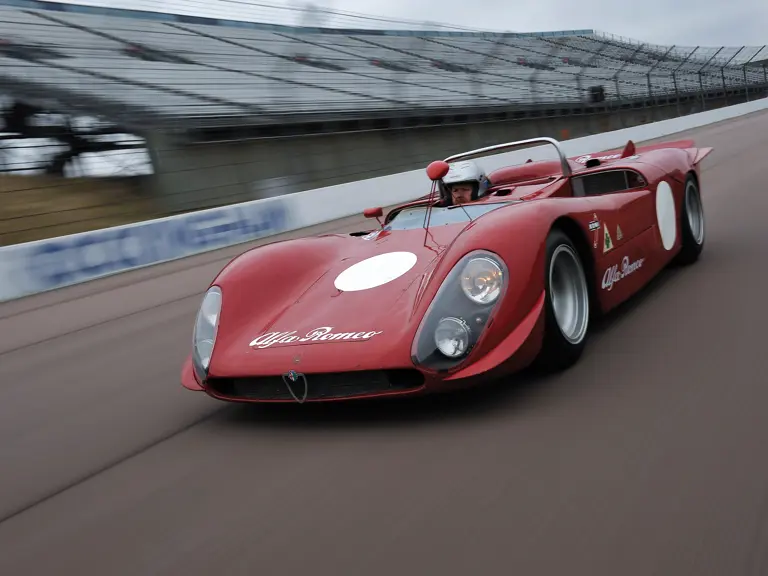
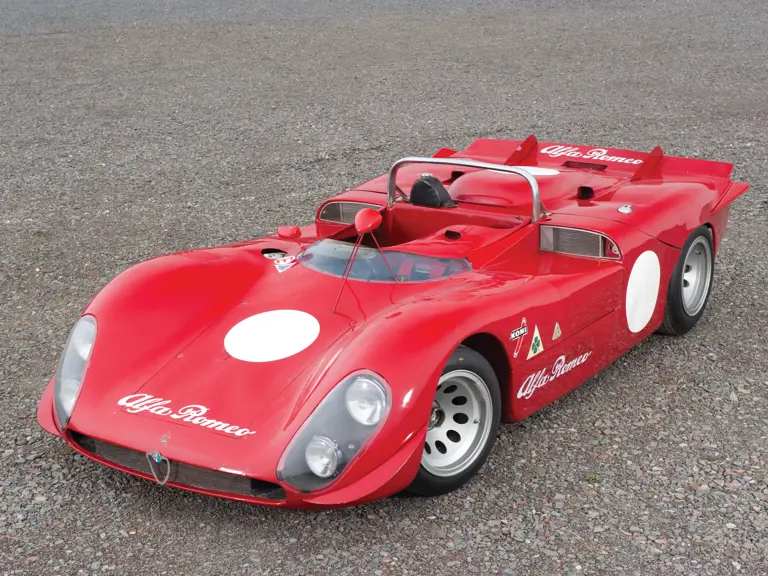
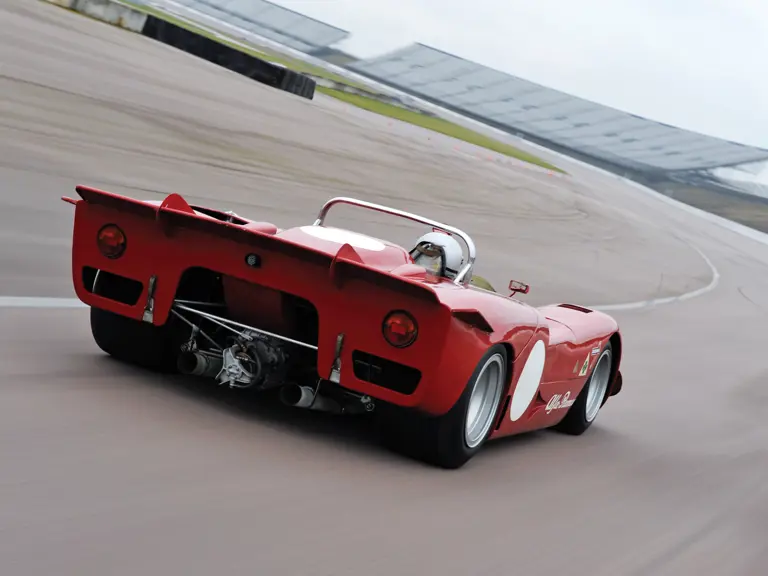
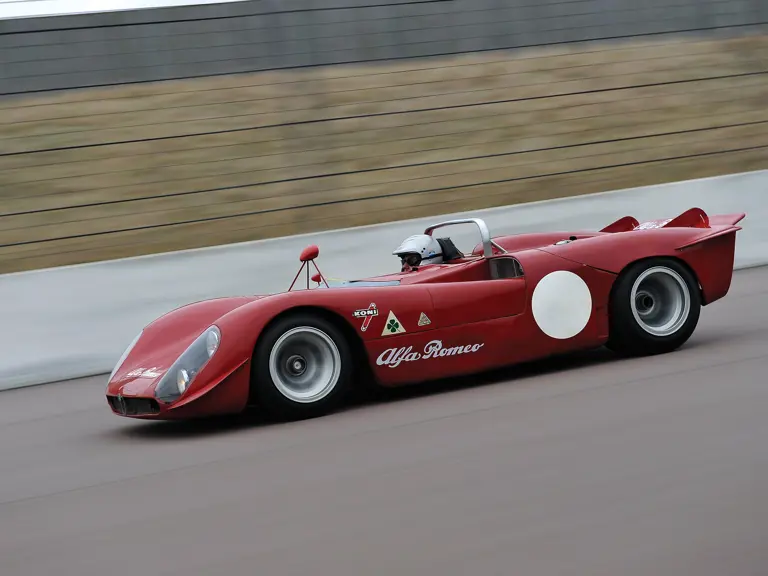
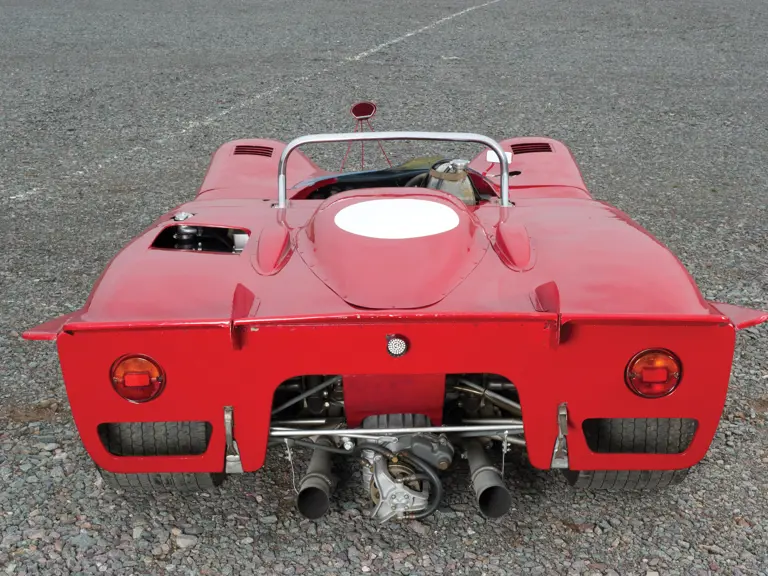
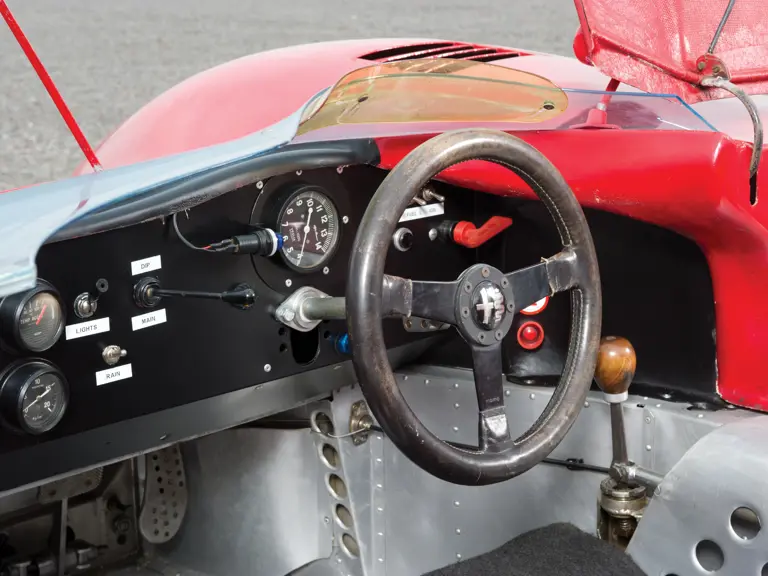
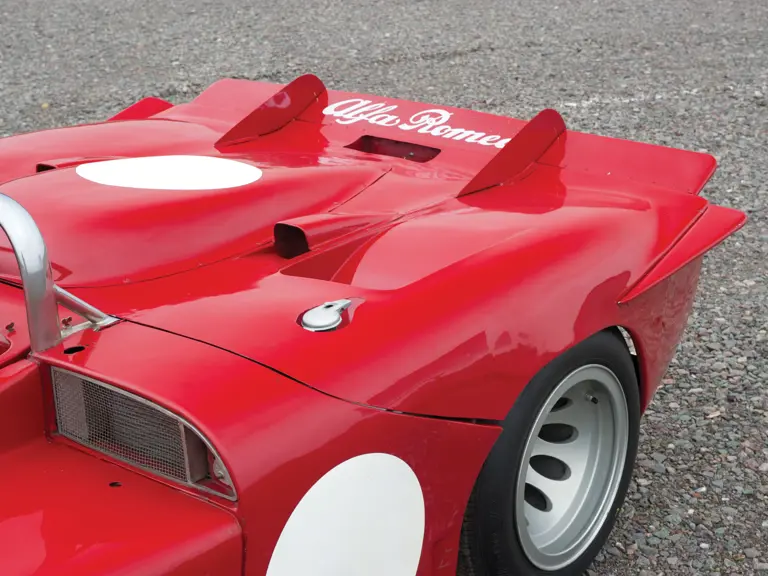
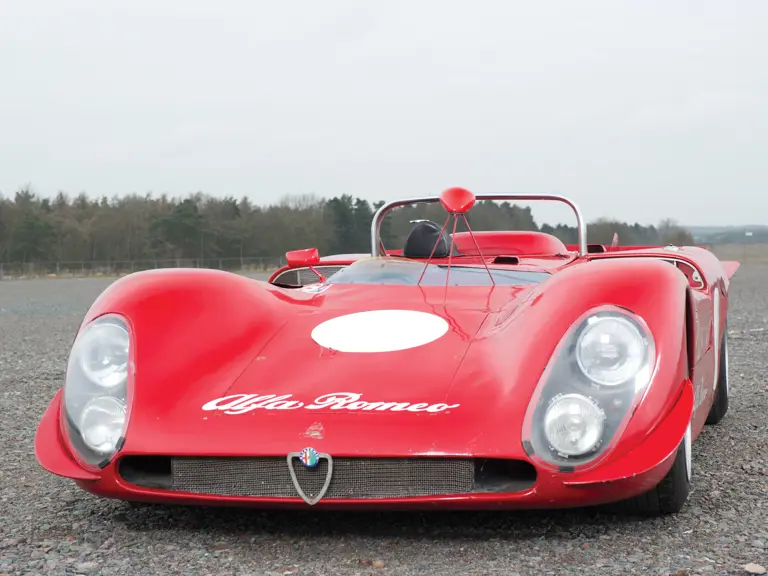
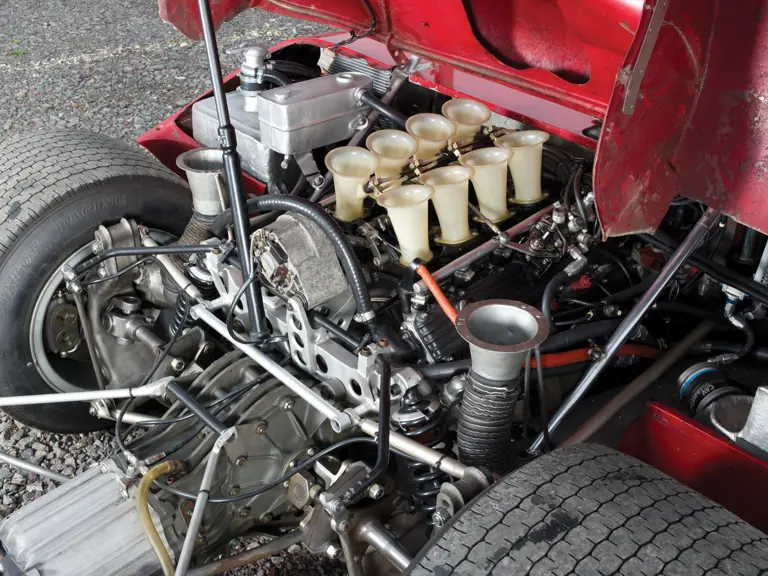
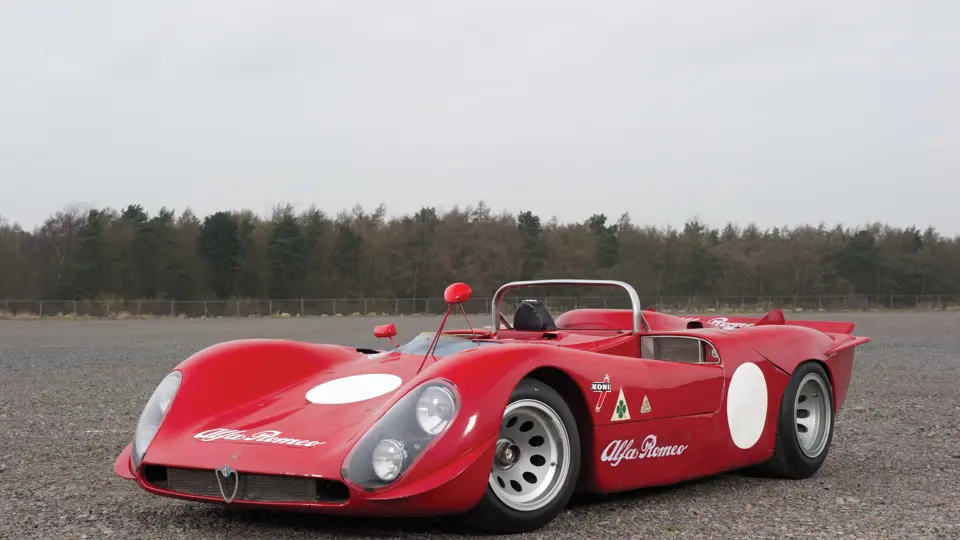
 | Monaco, Monaco
| Monaco, Monaco
